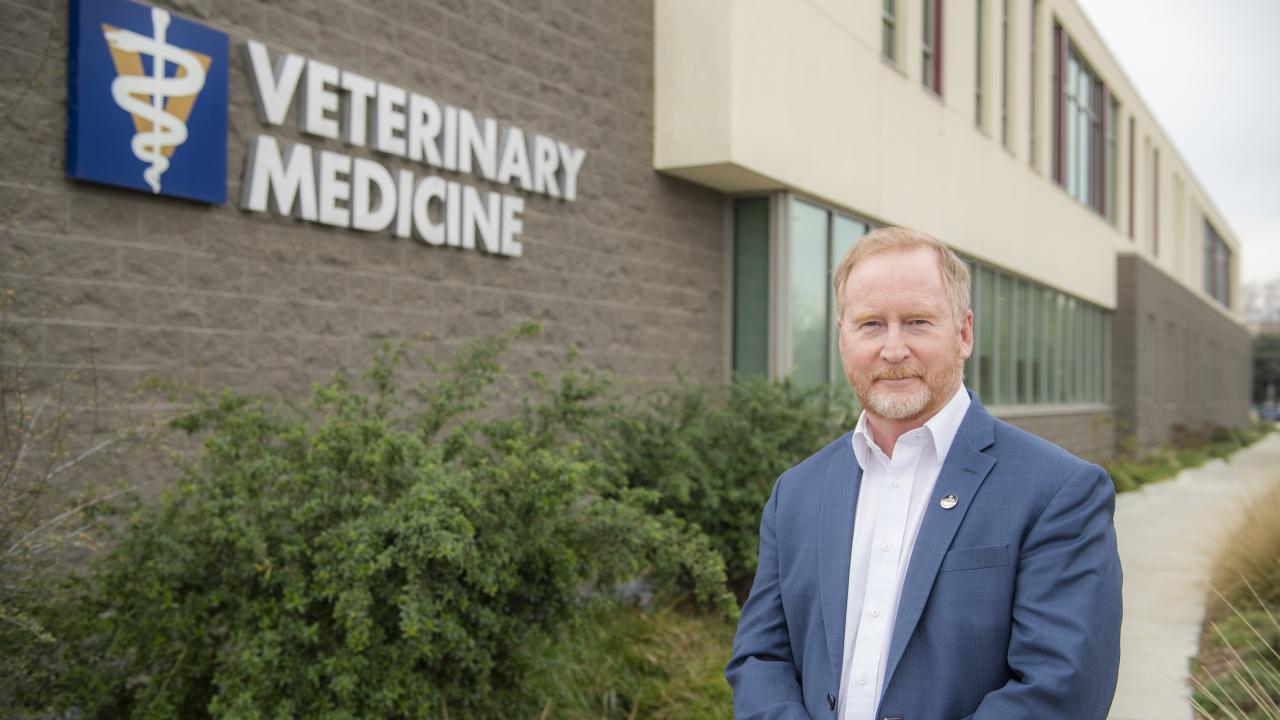
Dean Lairmore's COVID-19 Update - April 5, 2021
Veterinary Medicine Community:
To start this update, I would like to recognize one of our first-year veterinary students, Madison Luker, who is a member of a multi-institutional student team that won a University of Georgia Food, Agribusiness and Entrepreneurial Initiative (FABricate) pitch competition. The team’s pitch won $10,000 to help them move their product forward.
The product concept, called AutoMat, is a retractable non-slip mat that can self-disinfect. The mats are designed to increase animal comfort as well as reducing chemical disinfectants and material waste associated with examination areas. They are still in the blueprint stage, but with this boost, the AutoMat team has resources to move ahead.
This is exactly the type of innovation that we are hoping to foster through the National Veterinary Entrepreneurship Academy, taking place this year online from July 12-16. If you, like Madison, have an interest in entrepreneurship, I strongly encourage you to participate in the academy. You can learn more at the NVEA site.
Research Studies
Through recent scientific papers, and modeling and analysis tools, we continue to demonstrate our global leadership in producing new knowledge to understand our world.
Today, we announced a new web application called SpillOver, which ranks the risk of wildlife-to-human spillover for newly discovered viruses. SpillOver is the first open-source risk assessment tool that evaluates viruses to estimate their zoonotic spillover and pandemic potential.
The tool is tied to a study published in the journal PNAS, in which authors from the One Health Institute—including Zoë Grange, Christine Kreuder Johnson, Simon Anthony, Kirsten Gilardi, Eri Togami, Gema Vidal, and Jonna Mazet among others—identified the most relevant viral, host and environmental risk factors for virus spillover. This tool and analysis are very useful, as they effectively create a watchlist of newly discovered viruses to help policymakers and health scientists prioritize them for further characterization, surveillance, and risk-reducing interventions.
In addition, Nature’s Scientific Reports has published a paper from One Health Institute researcher Nistara Randhawa, Professors Duncan Temple Lang, Beatriz Martinez Lopez, Kirsten Gilardi and Jonna Mazet, and former graduate student Hugo Mailhot, that takes the GLobal Epidemic and Mobility Computational Model (GLEaM) a step forward. It creates a framework for modeling regional disease spread in rural areas. Since emerging infectious diseases can originate in such areas, the new framework can be, in the words of the authors, “valuable for planning and control purposes in real outbreak scenarios.”
Last week, Professor Bart Weimer and graduate student DJ Darwin Bandoy released a pre-publication of a study they’ve been conducting that sheds light on the spread of SARS-CoV-2 strains. They examined gene mutations and concluded that increases in mutation correlated to outbreaks of COVID-19. This new information and the GENI (pathogen genome identity) metric they developed can potentially be very helpful in anticipating and controlling future spread of COVID-19.
Science has been critically important to addressing this pandemic in record time. I’m proud that we are a part of that, and proud of all the other important research being produced at the school. All of our research is now ramping back up, per recent campus guidance on entering Phase 3.
Travel and Covid-19 Updates
We received notice that the University of California Office of the President released updated travel guidelines for the UC community. A summary of the changes can be found on Global Affairs’ Travel Announcement: Novel Coronavirus (COVID-19) webpage, as well as updated campus guidelines for travel. Nonessential international travel remains prohibited, and all international travel on university business still requires approval from the Travel Review Committee.
The updates to the travel restrictions are another reminder that we appear to be putting the worst of the pandemic behind us, at least locally. Let’s keep it that way! Please keep following local and federal guidance, get vaccinated when it’s your turn, and keep wearing your masks, washing your hands, and maintaining social distance. We are making progress against this pandemic, together.
As a reminder, all UC Davis employees including student employees are eligible to receive the COVID-19 vaccine. Learn more on the COVID-19 Vaccine Program site. It is important for all of us to take care of our well-being as we approach the end of the pandemic. A new page on the SVM website has been compiled indicating the many emotional and physical health resources available to faculty and staff, including the Academic and Staff Assistance Program.
